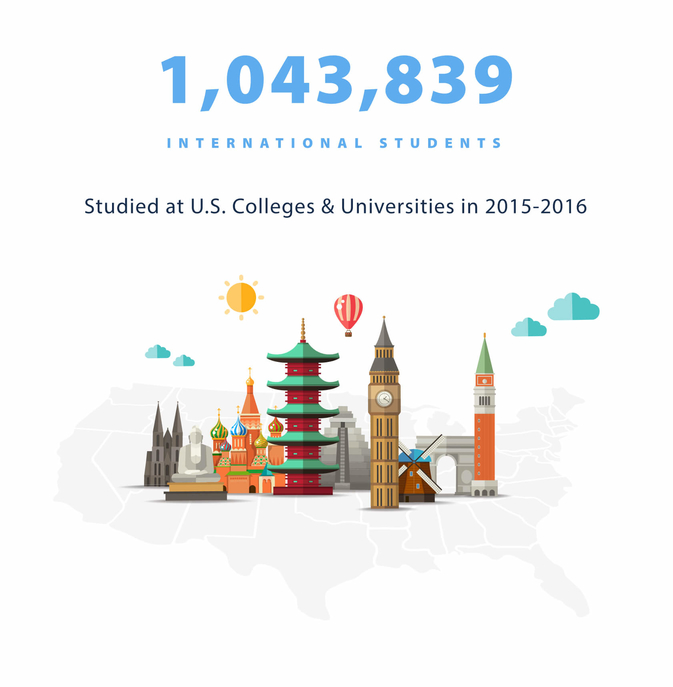Insurance
Choose the plan that meets your needs and spend more time enjoying your international experience not worrying about your insurance coverage.
Find Your PlanWhat type of coverage
do you need?
Travel Medical
Insurance
Temporary coverage for accidents, sicknesses, & emergency evacuations when visiting or traveling outside of your home country.
International Health Insurance
Annually renewable international private medical insurance coverage for expats and global citizens living or working internationally.
Travel
Insurance
Coverage designed to protect you from financial losses should your trip be delayed, interrupted, or cancelled.
Enterprise Services
Meet your duty of care obligations with confidence, knowing your travelers are safe, healthy, and connected wherever they may be in the world.
Show ServicesWhat type of organization do you represent?
Medical & Travel
Assistance
Your travelers can access 24/7 global support should they need medical attention, travel assistance, or medical transport services.
Global Workers' Compensation Case Management
Rest assured knowing you have an experienced team who is committed to reducing your costs, moving your files forward, and serving as an international resource for all your work injury claims.
Security Assistance
Services
Keep your travelers safe, no matter where they are, with real-time alerts and intelligence on safety, health, political, and other global risks.
Insurance Administrative
Services
You’ll have experts to guide you through all things related to your health care plan needs, from enrollment to claim reimbursement.

International Student Health Insurance
Health Insurance Plans for International Students & Students Studying Abroad
Health insurance plans for international students provide the right mix of plan benefits, value, and coverage to keep you safe and healthy. IMG student health plans can help keep your budget healthy, too.
Coverage for international students studying in the U.S. is available to students on an F1 visa and meets J1 visa requirements. Students from the U.S. studying abroad can also stay protected in Schengen visa countries and beyond with an IMG plan.
Long- and short-term student health plans from IMG are great for:
- Individuals and groups participating in international student programs
- Cultural exchange participants
- International graduate students
- Scholars and educators
- Dependents of those participating in international study programs
With health insurance plans designed specifically for international and study abroad students and scholars, IMG has done the homework so you don't have to. To compare IMG's student insurance plans, check out our article, Choosing the Best International Student Insurance Plan for You.
Popular Student Health Insurance Plans
For International Students & Scholars

Why Do I Need International Student Health Insurance?
Simple. It's Generally Required.
Most universities and colleges require that international and study abroad students obtain a minimum level of medical coverage for their enrollment period.
While some schools provide their own coverage options for students, others do not require students to buy the university-sponsored insurance as long as they buy comparable coverage that meets or exceeds the school's requirements.
Your host country may also require insurance for international students, so it's important to verify your visa requirements before purchasing coverage.
International students who hold F1 visas are not required by the U.S. government to meet certain health insurance requirements, but they may still be required by their school to purchase certain coverage.
Factors that Determine Cost
The cost of an individual international student health insurance plan varies based on the following factors.

Age of the Student
Age is the primary determining factor for price. Insurance companies often charge different amounts for different age groups, with the price increasing for older age groups.

Length of Coverage
There are monthly rates associated with international student health insurance, so price increases proportionally to the number of months of coverage purchased.

Level of Coverage
Plans can range from basic and budget-friendly, to robust and complete with maternity coverage and enhanced pre-existing condition coverage. Students can choose the level of coverage they desire and balance that with the cost they are willing to incur.

International Student Health Insurance Benefits
Key Considerations for Purchasing Student Health Plans
Student Medical Coverage for Accidents or Illnesses
Your school and host country will often require students to purchase a plan that includes a minimum amount of medical coverage for accidents or illnesses.
Emergency Medical Evacuation
Coverage for an emergency medical evacuation to the nearest qualified medical facility, expenses for transportation resulting from the evacuation, and the cost of returning the student to either their home country or the country where the evacuation occurred.
Repatriation and Return of Mortal Remains
In the unfortunate event that a student dies as a result of a covered illness or injury while outside of their home country, this benefit can cover expenses for transporting the remains back home.
How to Get International Student Health Insurance
Follow these simple steps and purchase your coverage worry free.

1. Research
Research your school's and host country's coverage requirements.

2. Confirm
Confirm that your school allows you to waive the university-sponsored plan and purchase your own insurance.

3. Search
Search for the right plan for you, paying close attention to coverage and cost.

4. Purchase
Purchase a plan and submit a waiver to your university, providing proof of coverage and any other necessary documentation.
Recent Blog Articles
U.S. Academics: How International Students Should Choose Their U.S. Destinations
U.S. colleges and universities attract students from across the globe, but not all schools are created equal. Whether in terms of academics, culture or the surrounding infrastructure, each college offers a different experience, and international students should make sure that experience meets their specific needs.
How International Students Should Choose Their U.S. College:
- Read into the Rankings
- Take Transportation into Consideration
- Research Health Insurance and Local Health Care
- Consider Language, Crime, Culture
Importance of Rankings
International students studying in the U.S. want to attend the best schools, but what constitutes the “best” depends on the topic of study. U.S. schools offer a wide variety of different programs and degrees. It is important to research each school's facilities, reputations, and rankings in detail, paying attention to their performance in the chosen field. With over 1 million international students studying in the U.S. each year, fellow student reviews can also be very valuable when making your decision.

One factor to consider is the difference between U.S. universities’ undergraduate programs and their graduate and professional schools. Emory University, for example, ranks higher than the University of Virginia (UVA) as an undergraduate institution. For those considering law school, however, UVA is widely considered the better of the two. The better a student understands these differences and tailors their applications accordingly, the easier it is to take full advantage of American higher education.
Transportation Matters!
In addition to the quality of the university, international students must consider the infrastructure around that university. In particular, take stock of the available public transportation, as this will be essential for getting to class on time. Transit options in the United States vary wildly from city to city. Some locations have convenient and sophisticated transportation networks. New York City, for example, has an extensive network of subways and buses. A student can thus attend New York University, Columbia University, or other schools in the city without needing to live on campus or obtain a U.S. driver’s license.
On the other hand, some of the best U.S. schools are located in small towns with limited public transit. These include UVA in Charlottesville, Virginia; the University of North Carolina at Chapel Hill in Chapel Hill, North Carolina; and Dartmouth College in Hanover, New Hampshire. Those who attend these schools will either need to obtain a valid driver’s license and a car or live on campus for the duration of their time there. Students should consider the financial and practical burden of these options, and take that into account when making a decision.
Is Your Health Covered?
International students studying in the United States are often required to obtain international student health insurance – either as a requirement by their university or their visa.
They should check these requirements closely, as each university and visa option has specifications for the level of coverage students need. Many universities offer their own health insurance plan, but some offer students the option to opt out – or “waive” this coverage – so they can purchase their own plan. Learn more about submitting a waiver here.
Another important consideration is quality of (and access to) health care. Students should look into the quality and availability of medical facilities near the university they are considering, and how far they would have to travel if a medical emergency were to arise.
Consider Additional Aspects
Besides transportation, school rankings, and health care, international students should also investigate:
- Languages- Students whose first language is not English may want to study in a town where large numbers of people speak their mother tongue. New York City, for example, has large numbers of Spanish, Portuguese, Chinese, and Korean speakers. Likewise, Dearborn, Michigan, where one of the University of Michigan campuses is located, has large numbers of Arabic speakers.
- Crime- Violent crime rates vary wildly across the United States. Some cities, like New York, are among the safest in the world, while others are among the most dangerous. Students should consider crime near the universities they want to attend, along with the protection those universities offer.
- Culture- Whether belonging to the schools themselves or to the surrounding town, theaters, libraries, and other institutions can significantly enhance the college experience while offering an introduction to U.S. culture. Students should see what types of facilities are available around each school.
Finally, Once You've Chosen Your Destination:

For more information on studying in or traveling to the United States, visit our Student / Scholar page. International Medical Group® (IMG®) offers quality international student health insurance policies that meet J1 visa requirements. View our plans page to get pricing options.
Disclaimer
This is not an offer to enter into an insurance contract. This is only a summary and shall not bind the company or require the company to offer or write any insurance at any particular rate or to any particular group or individual. The information on this page does and will not affect, modify or supersede in any way the policy, certificate of insurance and governing policy documents (together the "Insurance Contract"). The actual rates and benefits are governed by the Insurance Contract and nothing else. Benefits are subject to exclusions and limitations.



